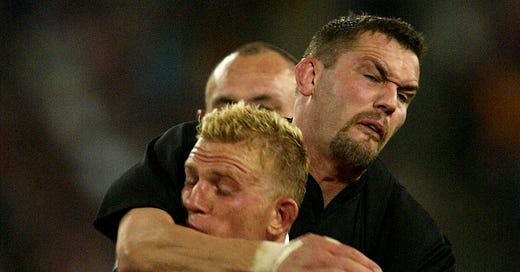Heads, you lose: The former Wales hardman tackling rugby's leadership
PLUS: A bumper edition of That Week That Was and the Weekend That Will Be
Alix Popham is a man in a hurry.
The former Wales loose forward has little time for procrastinators. There’s an urgency to everything he does.
One of the original signatories to a lawsuit against World Rugby that could have enormous ramifications for the sport, Popham’s post-caree…
Keep reading with a 7-day free trial
Subscribe to The Bounce to keep reading this post and get 7 days of free access to the full post archives.




